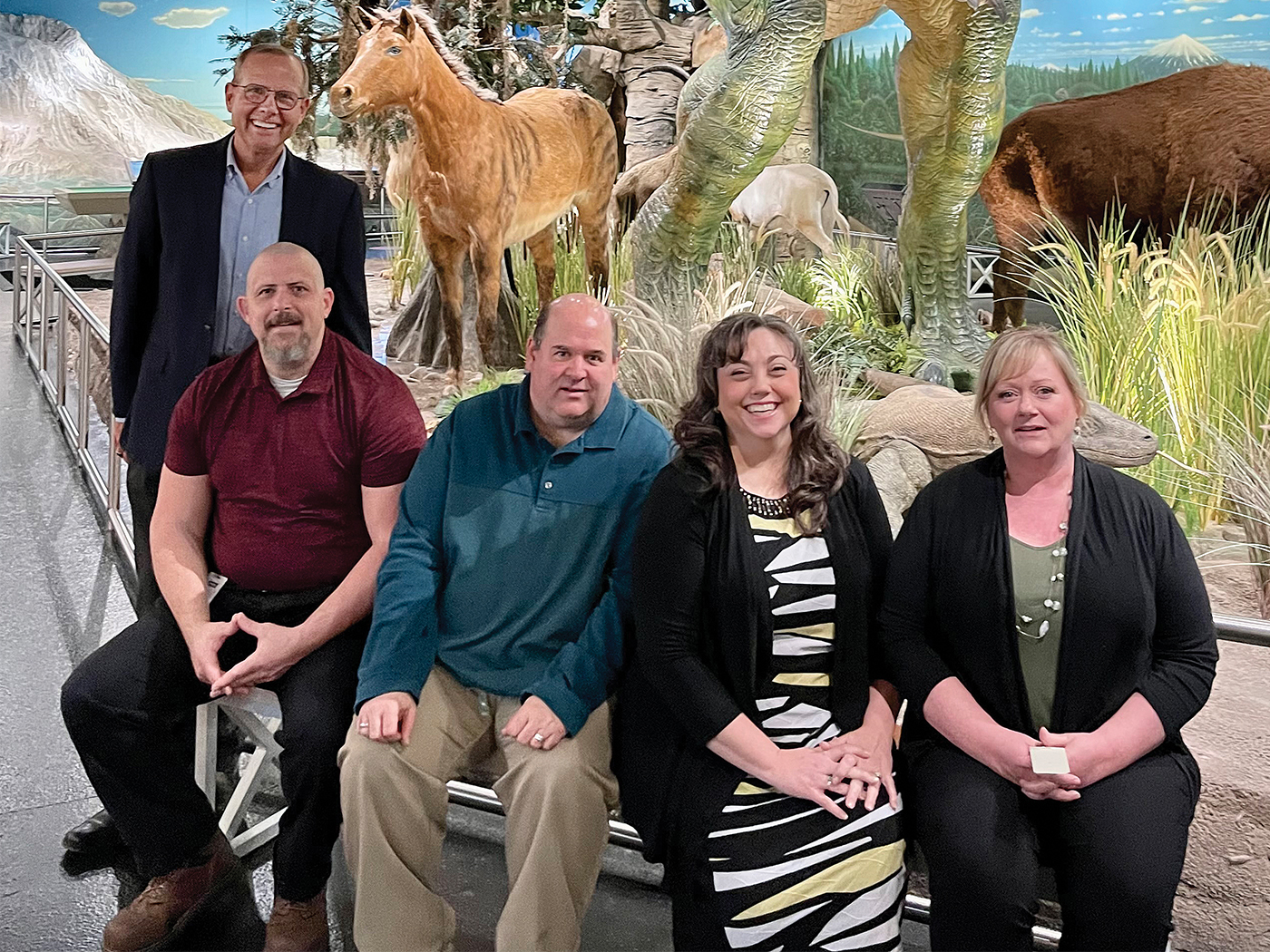But the faith of the evolutionist and humanist is of another order altogether. His is a splendid faith indeed, a faith not dependent on anything so mundane as evidence or logic, but rather a faith strong in its childlike trust, relying wholly on omniscient Chance and omnipotent Matter to produce the complex systems and mighty energies of the universe.
The Harvard zoologist, P.D. Darlington, has penned a remarkable statement of this evolutionary faith, in his book Evolution for Naturalists. Acknowledging that the creative abilities of Matter are entirely enigmatic, he nevertheless bravely believes in them:
The outstanding evolutionary mystery now is how matter has originated and evolved, why it has taken its present form in the universe and on the earth, and why it is capable of forming itself into complex living sets of molecules. This capability is inherent in matter as we know it, in its organization and energy. 2Is not this a fine statement of faith? Even after looking down many avenues of potential evidence, Professor Darlington, more than 200 pages later, is still able to assert there is no evidence and thus his faith is still pure.
It is a fundamental evolutionary generalization that no external agent imposes life or matter. Matter takes the forms it does because it has the inherent capacity to do so.—This is one of the most remarkable and mysterious facts about our universe: that matter exists that has the capacity to form itself into the most complex patterns of life.3The evolutionist faces a great temptation here, a serious stumblingblock to his faith. It seems utterly impossible that dead Matter could create Life. At this point, surely, he will have to defer to logic and acknowledge that Life must be produced by a Cause which is itself alive. After all, scientists long ago showed experimentally that life comes only from life.
Ah, not so! His faith is strong enough to surmount even this barrier. By this I do not mean to suggest the existence of a vital force or entelechy or universal intelligence, but just to state an attribute of matter as represented by the atoms and molecules we know.—We do not solve the mystery by using our inadequate brains to invent mystic explanations. 4This faith in the life-generating powers of Matter glows even more brightly in light of the confessed bafflement of those scientists most familiar with the nature of life and its inexplicable naturalistic origin. One of these has said:
We do not understand even the general features of the origin of the genetic code.—The origin of the genetic code is the most baffling aspect of the problem of the origins of life and a major conceptual or experimental breakthrough may be needed before we can make any substantial progress. 5In fact, the author of this confession, Dr. Orgel, seems at first to have wavered somewhat in his own faith. He and Dr. Francis Crick, co-discoverer of the remarkably complex DNA molecule, now known to be a basic component of life and of the genetic code which controls the reproduction of all living systems, have acknowledged that life was too complex to have arisen naturalistically in the few billion years of earth history.
In actuality, however, their faith is still strong, perhaps even stronger than that of other evolutionists. They believe in "directed panspermia," the amazing notion that lifeseeds were planted on earth by an unknown civilization from some other world in outer space! The mere statement of this concept is itself adequate testimony to the grand credulity of the faith of these fine evolutionists, since there exists not one iota of scientific evidence for such ethereal civilizations.
Another evolutionist of bold faith is Richard Dawkins, originator and popularizer of the remarkable concept of "selfish genes", an idea which itself bespeaks an unusual type of faith. Dawkins, who is on the faculty in zoology at England's famed Oxford University, maintains an unshakeable faith in Darwinian evolution, even at the molecular level, in spite of all the modern attacks thereon by fellow evolutionists. He acknowledges, of course, that the logical thing is to believe in God.
The more statistically improbable a thing is, the less can we believe that it just happened by blind chance. Superficially the obvious alternative to chance is an intelligent Designer. 6Even though it is, indeed, quite obvious that every complex and purposeful system which man has ever seen produced throughout history has been the product of an intelligent human designer, Professor Dawkins is willing to believe that life itself, far more complex than any man-made contrivance, was not designed. He dismisses God in these patronizing words:
I am afraid I shall give God rather short shrift. He may have many virtues: no doubt he is invaluable as a pricker of the conscience and a comfort to the dying and bereaved, but as an explanation of organized complexity he simply will not do. It is organized complexity we are trying to explain, so it is footling to invoke in explanation a being sufficiently organized and complex to create it. 7
He is right, of course. It requires only a very ordinary sort of faith to explain a given effect by a cause adequate to produce the effect. Much more faith is required, an extra-ordinary faith, to believe that effects are produced by causes that are not able to produce them! To believe that non-living matter can create life, that chaotic disorder can evolve itself into organized complexity, that unthinking atoms can sort themselves into thinking human beings,—here is a worthy faith!
Evolutionary faith is not limited to biologists, of course. It can be appropriated by evolutionary humanists in philosophy, in economics, in politics, in all fields. A first-rate example was Adolph Hitler, whose implicit faith in Darwinism ("the preservation of favored races in the struggle for life", as the sub-title of Darwin's Origin of Species put it) gave him the vision and courage to array his assumed "master race" against the world, believing that its triumph would be for the greater good of all mankind in its ongoing evolutionary progress. Although his armies finally went down to defeat, he still retained his great faith!Hitler believed in struggle as a Darwinian principle of human life that forced every people to try to dominate all others; without struggle they would rot and perish.—Even in his own defeat in April 1945, Hitler expressed his faith in the survival of the stronger and declared the Slavic peoples to have proven themselves the stronger. 8Note the strong and unselfish evolutionary faith of Adolph Hitler, willing even to sacrifice his entire Teutonic "race" and finally to take his own life, to advance the cause of evolution.
Finally, let us consider the remarkable faith of Isaac Asimov, the most prolific science writer of our generation. Asimov believes that our present universe began with the Big Bang of a primeval cosmic egg, whose initial explosion led to the formation of chemical elements, stars, galaxies and finally people. Now note his fine statement of faith.
The cosmic egg may be structureless (as far as we know), but it apparently represented a very orderly conglomeration of matter. Its explosion represented a vast shift in the direction of disorder, and ever since, the amount of disorder in the Universe has been increasing. 9
Now explosions commonly produce disorder and disintegration, so this greatest of all explosions must have produced the ultimate in disorder and disintegration. Evolution requires, however, that the great Bang somehow yield great order and complex structures. Dr. Asimov, therefore, believes that the primeval egg possessed an almost infinitely high degree of order, even though it had no structure.
Herein we encounter Asimov's deep faith. In all normal systems with which scientists work, "structure" and "order" are essentially synonymous, equivalent also to "information," "complexity," "organization," "integration" and other such terms. If it did what evolutionists believe it did, the primeval egg certainly must have possessed a tremendous amount of organizing information and it thus seems nonsensical to say it had no structure. Asimov believes not only in run-of-the-mill impossibilities but in the equivalence of opposites ("no structure" = "high order").However, Dr. Asimov does feel it necessary to attempt some kind of rationalization, knowing that people of lesser faith might otherwise stumble.
The existence of the cosmic egg is, however, itself something of an anomaly. If the general movement of the universe is from order to disorder, how did the order (which presumable existed in the cosmic egg) originate? Where did it come from?10At this point, he makes another leap of faith, proposing that the universe—instead of expanding, as he believes it is doing now—was contracting, with everything somehow in reverse and with its order increasing as it contracted. For this to be possible, of course, gravitational attraction has to be invoked to pull it together. The problem with this belief, however, is that the total mass of the matter in the universe is far too small to allow this ever to happen.
Such a problem as this does not overcome the faith of an Asimov. He can handle it merely by another act of faith.
I have a hunch that the 'missing mass' required to raise the density to the proper figure will yet be found and that the universe will yet be discovered to oscillate.11
Asimov's hunch, therefore, solves it all.
We creationists, admittedly, find it difficult to believe all these things that evolutionists manage to believe. But we have always had a high regard for the principle of faith, even though our own faith is rather weak, based as it is on such strong evidence as almost to compel belief in the God of creation and redemption. We must, therefore, at least express admiration for the remarkable faith of the evolutionist.
REFERENCES
1. E.g., see the many evidences cited in the book Many Infallible Proofs (by Henry M. Morris; San Diego: CLP, 1974; pp. 1-97.
2. Darlington, C.D., Evolution for Naturalists (NY: John Wiley, 1980) p. 15.
3. Ibid, p. 234.
4. Ibid.
5. Orgel, Leslie, "Darwinism at the Very Beginning of Life," New Scientist, V. 94., Apr. 15, 1982, p. 15 1.
6. Dawkins, Richard, "The Necessity of Darwinism," New Scientist, V. 94, Apr. 15, 1982, p. 130.
7. Ibid.
8. Hoffman, P., Hitler’s Personal Security (London: Pergamon, 1979), p. 264.
9. Asimov, I., In the Beginning (NY: Crown Publ., 1981), p. 24.
10. Ibid.
11. Ibid., p. 25.
*Dr. Henry M. Morris is the Founder and President Emeritus of the Institute for Creation Research.
















